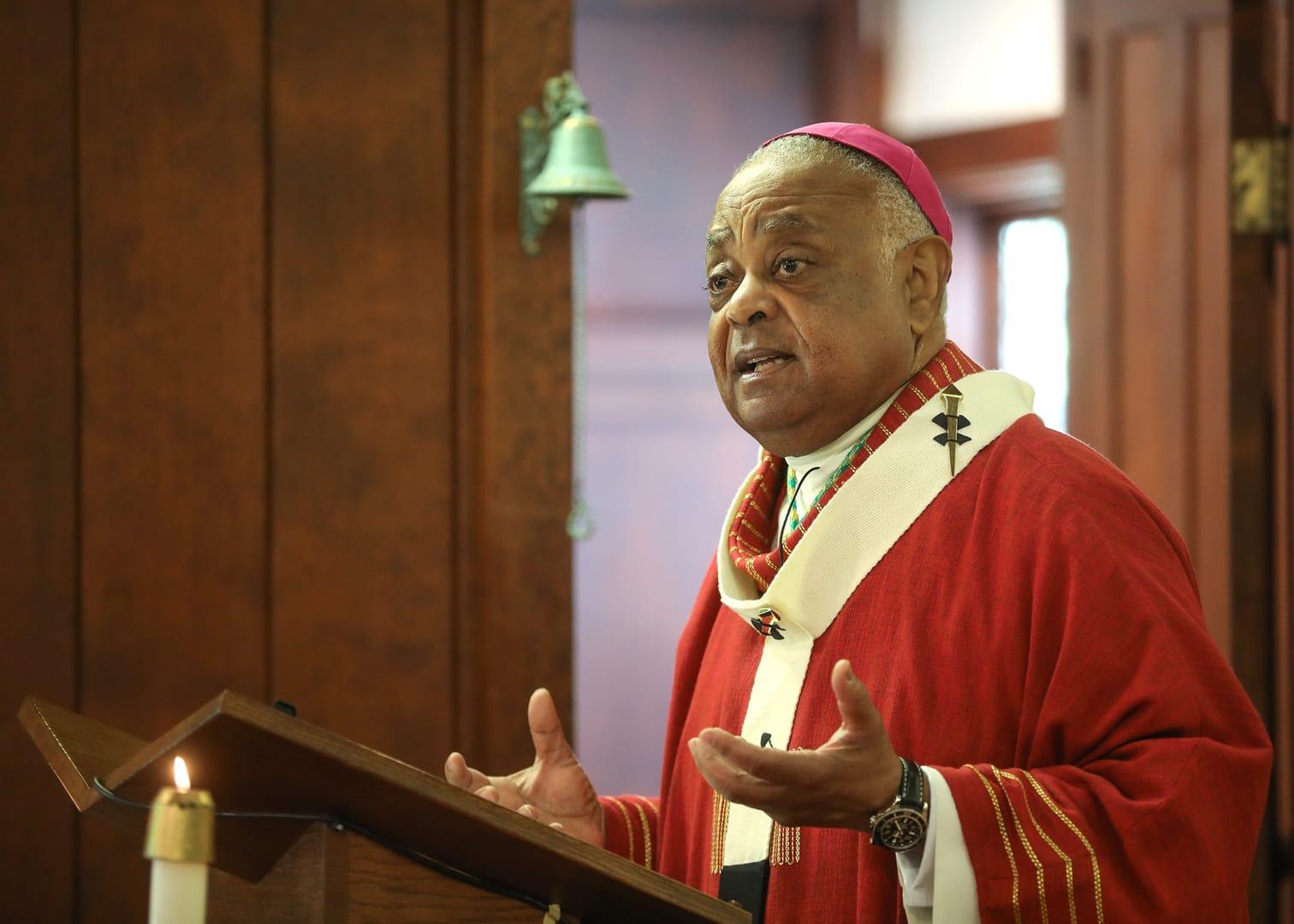SOUTH BEND, Indiana — American bishops must do more to uphold the legacy set by religious leaders during the civil rights movement, Archbishop Wilton Gregory said in a talk last week.
The Archbishop of Washington called for bishops to facilitate more interactions between Catholics of different races while addressing a group of students, staff, and alumni from the University of Notre Dame, as part of the lecture series “Building an Anti-Racist Vocabulary,” sponsored by the Klau Center for Civil and Human Rights.
During his remarks about race relations within the U.S. Church, Gregory recalled his own experiences as an auxiliary bishop in the Archdiocese of Chicago. At the time, some encouraged Gregory to lead the confirmation rite for Black Catholics on the south side of the city, suggesting it would be good for young Black Catholics to see a bishop who looked like them.
Gregory, however, had his own idea.
“It wasn’t just the African American kids that needed to see a Black bishop, it was the white kids that needed to see it,” he told participants in the August 21 webinar.
While opportunities to facilitate interracial dialogue are needed in the Church today, there are obstacles to realizing that goal, Gregory said. One challenge is finding a way to discuss racism without people tuning out because they feel like they’re being “lectured at” or “put down.”
“I don’t want to go to a meeting where I walk away and all I do is feel bad. I want to go to a meeting where I can hear another story, and take away the possibility of understanding a person whose experience is different,” he said. “But it doesn’t say, ‘I’m a bad person,’ it says, ‘I’m a person that needs conversion.’”
“We have to set up those kinds of conversations that speak the truth in love,” he added.
While the Church plays a role in organizing those conversations, Gregory also spoke about the importance of individual responsibility in combating racism.
“We know that there is systemic racism woven into almost every dimension of the American institution,” the archbishop said, “but I’d like to focus the question of morality on the individual. That is, where is my heart?”
To illustrate his message, Gregory turned to the practice of knocking down statues honoring figures associated with the Confederate States of America. While Gregory said the gesture could be “important” and “long overdue in some cases,” it does not take the place of personal conversion.
“I can take down the statue of Robert E. Lee or some of the other Confederate heroes, but if I don’t move my heart, all I’ve done is take down a granite statue,” he said. “The hardness of heart that is mine is still there.”
Gregory also applauded the leadership of young people in confronting racism after the killing of George Floyd while in police custody this spring.
“We’ve got young people on fire at this moment because of their concern about racial injustice and racism, probably at a greater level of participation than we have experienced in the past,” he said.
While acknowledging the persistence of racism in America, Gregory — who celebrated Mass marking the 57th anniversary of Martin Luther King, Jr.’s “I Have a Dream” speech on Friday — credited young people for part of his optimism about the future of racial justice.
“I really am very hopeful that the end result will be a step forward,” he said. “I think we’ve got to continue the struggle.”












